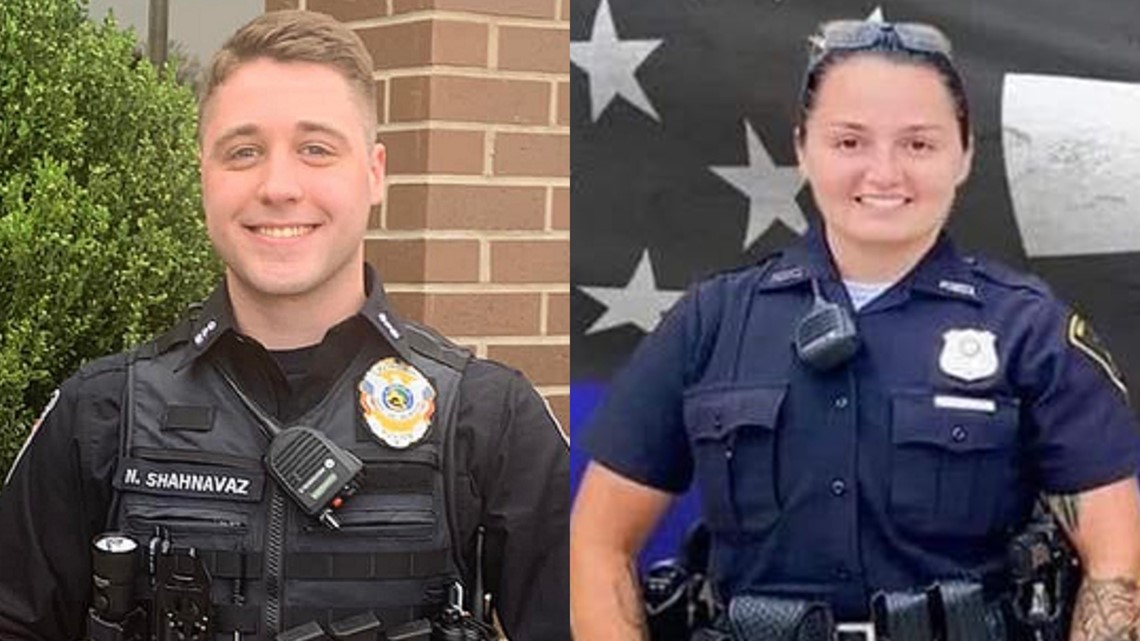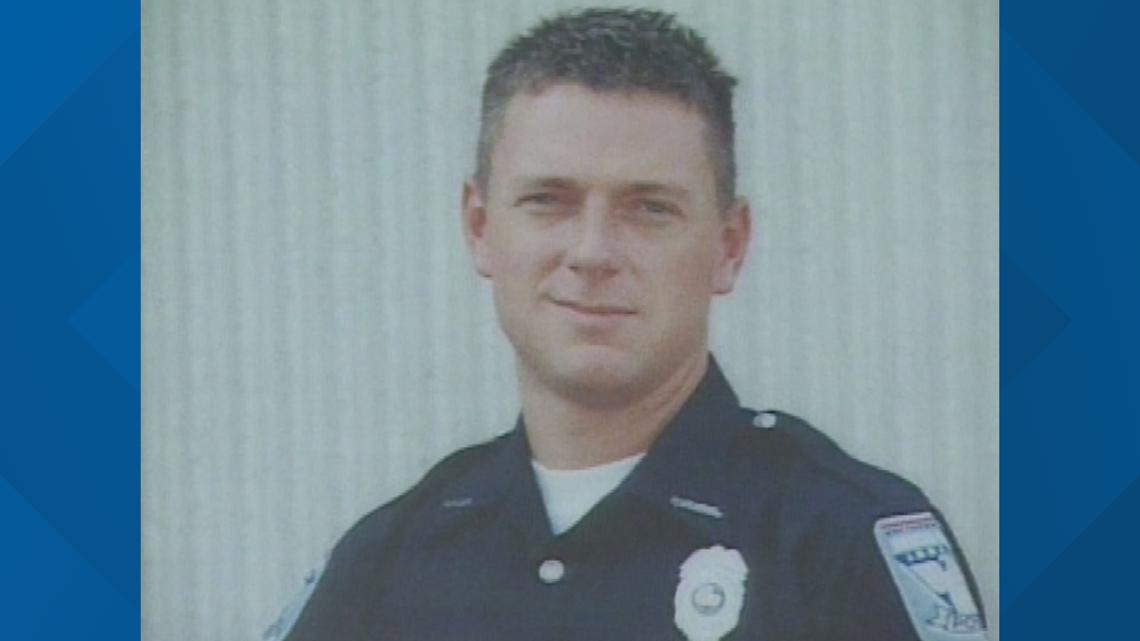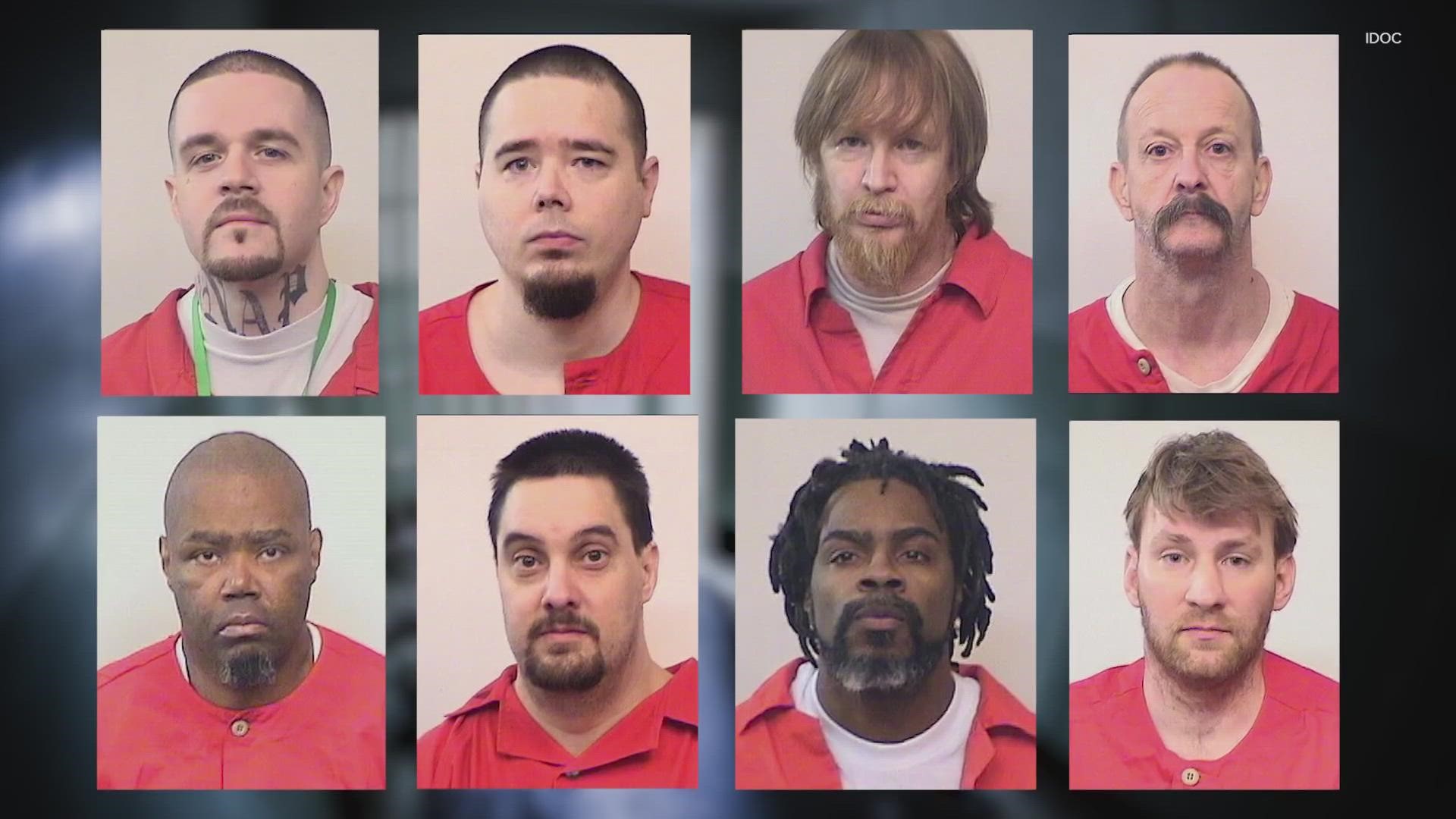INDIANAPOLIS — Eight men sit on death row at the Indiana State Prison in Michigan City. But Indiana has not executed anyone since Dec. 11, 2009. No executions are scheduled, despite four men having exhausted all appeals.
At the same time, prosecutors continue to seek the death penalty, especially in cases where police officers are shot and killed. Of Indiana's five pending death penalty cases, three involve police officers killed in the line of duty in the past three years.
Last summer, Elwood Police Officer Noah Shahnavaz and Richmond Police Officer Seara Burton were shot just 11 days apart. The Madison and Wayne County prosecutors both filed for the death penalty, beginning a lengthy legal process that will likely take years to reach a verdict, then a sentence. That will be followed by more years of state and federal appeals.


At this point, there is no indication when or if the state might schedule another execution.
Dee Dee Horen has waited over 22 years. Her first husband, Beech Grove Police Officer Bill Toney, died in the line of duty Sept. 29, 2000. A pursuit of a suspect in a stolen van turned into a foot chase. Benjamin Ritchie shot Toney five times, killing the 31-year-old husband and father of two daughters. Ritchie received the death penalty Oct. 15, 2002. All his state and federal appeals are long exhausted. Indiana has never scheduled an execution date.
"I would love to stop talking about it," said Horen during a recent conversation at the Beech Grove Police Department. "I would love to just say that justice was served — the sentence was carried out. I just don't really understand why we have a sentence that's not carried out."


Gov. Eric Holcomb’s office and the Indiana Department of Correction gave 13News nearly identical, short explanations. The statement from the governor's office reads, "Indiana does not currently have an inventory of lethal injection drugs and continues to explore ways to obtain them."
Horen has heard the same answer.
"It seems like a cop-out to be honest," Horen said. "I mean, how can it be that hard in this day and age? How can it be that hard — to get the medication, the cocktail, whatever you want to call it? I guess I don't really buy it."
Indiana is unable to obtain the three drugs used in its lethal injection drug cocktail. Many drug manufacturers don't want to sell their products to be used in executions. Some states that continue executions, like Texas, have switched to a single-drug, Pentobarbital.
In the past decade, death row inmates have challenged the drugs and protocols used for lethal injections as cruel and unusual punishment. That includes a pending lawsuit filed on behalf of Indiana death row inmate Roy Ward.
The Indiana Supreme Court has ruled the state can change its lethal injection drug protocol without public review. But that issue of secrecy also faces legal challenges.
Data from the Death Penalty Information Center (DPIC) shows that nationally, death penalty cases and executions are on a steady decline over the past 25 years. From a peak of 98 executions in the United States in 1999, that number dropped to 11 in 2021, with a slight uptick to 18 last year. Six people have been executed so far in 2023: in Texas (3), Missouri (2) and Oklahoma (1).
The time from death penalty sentencing to execution grows longer — if there ever is an execution. According to DPIC, the average time from sentencing to execution has risen from a low of 71 months in 1985 to 243 months in 2017, the latest data available. That’s over 20 years waiting for a lethal injection for the sentenced offender and for the families of victims.
"Their one hope for retribution, I wouldn't call it revenge, is this execution. And that's probably not going to happen," said Richard Dieter, interim director of the Death Penalty Information Center. "Maybe people think, 'Do the crime, you get the punishment.' Anyone who's looked at it knows that's a myth. It's possible. But it's rare, and it's getting rarer.”
Meantime, the costs of prosecuting death penalty cases climbs higher. The Indiana Public Defender Council estimates the cost of a death penalty jury trial, defense, incarceration and execution at $789,581.
Indianapolis attorney Eric Koselke is a death penalty case expert, having represented defendants in state and federal cases from jury trial to the U.S. Supreme Court. Koselke estimates a death penalty case will cost a county about $1 million today.
"We're wasting lots of money," Koselke said. "I feel like the victims in the cases, the surviving relatives, are actually in a lot of cases being victimized. Because, I think – when the cases start out – they're not aware of all the appeals and all the hoops you have to go through. Even if the victims initially want the death penalty, if they know what they're going to go through, I think a lot of them would not want to go through that. They would just want to make sure the person was put away for life. And, quite frankly, on appeal, it's more likely that a death penalty case will be reversed than a non-death penalty case. I just don't think people are advising the victims of all these issues. It's an entire waste of money because it's so unlikely the execution would ever be carried out."
Right now, the families of three Indiana police officers face that long legal road as prosecutors seek the death penalty. The parents of Elwood Police Officer Noah Shahnavaz lost their son July 31. Police said Carl Boards II fired 36 shots at Shahnavaz during a traffic stop before the officer could get out of his car or even unholster his own weapon.


Laurie and Matt Shahnavaz provided this statement to 13 News:
"Our family is beginning a legal journey that countless have already traveled, with many still awaiting the light to appear at the end of the tunnel. Out of respect for the legal process and to ensure swift and complete Justice for Noah, we must decline your interview request at this time. We retain hope that in the state of Indiana, when a jury speaks and when many layers of the judiciary speak, the legislative and executive branches will ensure the will of the people is carried out without undue delay."
Horen has shared her experience and advice with Laurie and Matt Shahnavaz.
"I want the families of other police officers to know that, 'yes, we should seek the death penalty for people who kill a police officer,'" Horen said. "But as far as the families go, I just don't want it to be part of their healing process."
Horen's daughters were just 18 months and 4 years old when their father was killed. They're adults now who never really knew their father but now know his killer.
“When I'm telling them I'm doing this interview now, they're looking at me and saying, 'Why is he still on death row, Mom?' I can't give them an answer to that," Horen said.


Horen wants Ritchie executed — for justice, not closure. She's not sure if she will attend the execution and wonders if she’ll ever have to make that decision. But Horen said she would go through this process again, even with the uncertainty.
"I think we have to," Horen said. "I think we have to send a message that it's not OK to kill a police officer."

